S.C. House Speaker Murrell Smith assigned a Judicial Reform committee that will release recommendations on reforming the Judicial Merit Selection Committee. This will certainly have positive impacts on the injustices associated with S.C. Family Court, S.C. Criminal Court, S.C. Lawfare, and frivolous lawsuits costing individuals in South Carolina liberty and hard earned dollars.
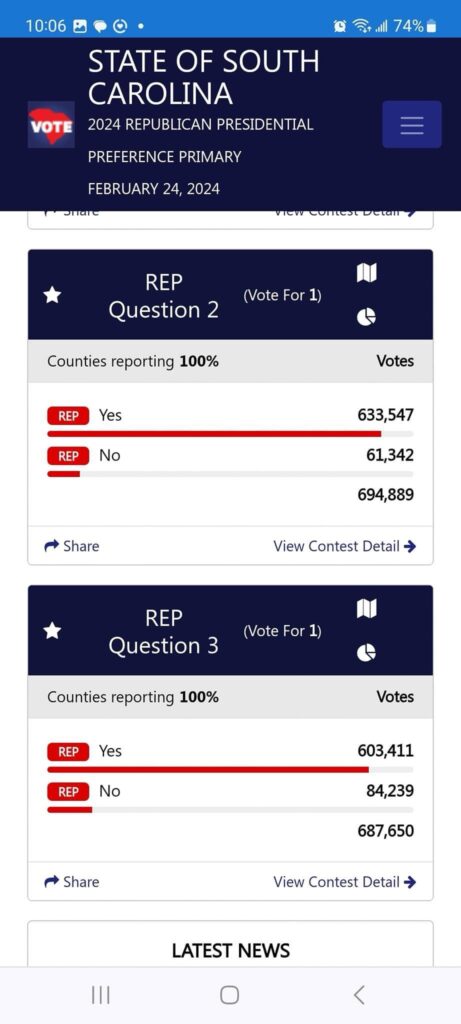
This past Saturday, 93 percent of S.C. voters demanded that the state address Judicial Reform.
Nationally, S.C. residents witnessed the Lawfare practiced by Lettitia James and Alvin Bragg of New York. They also witnessed the conduct of Fani Willis in Atlanta Georgia.
All of these high profile cases are damaging the brand of the American Judicial system much more than they diminish the candidacy of Donald Trump. This past Saturday, the entire nation witnessed the strength of Trump’s brand, as he beat Nikki Haley by 20 points in her home state.
SC Courts Need Judicial Court Reform
The voters spoke on Saturday. S.C. courts need an overhaul.
Attorney Clay Hopkins of Charleston is just one example of poor jurisprudence used by officers of the court that demands Judicial Court Reform. This morning Hopkins appeared in a S.C. Family Court matter in which his client is central. These matters are supposed to be adjudicated in private. Cameras are not allowed in the court room.
And yet, Hopkins went on Facebook this past weekend discussing the confidential matter in a Facebook group as MyrtleBeachSC News screen shot below. He discussed this matter with Freelance Journalist Lee Granade. Granade has submitted articles to our news platform previously.
SHOULD A FAMILY COURT LAWYER MAKE PUBLIC POSTS LIKE THIS?


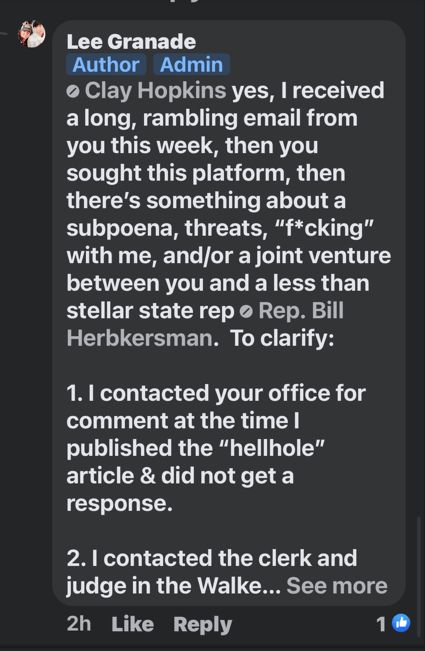
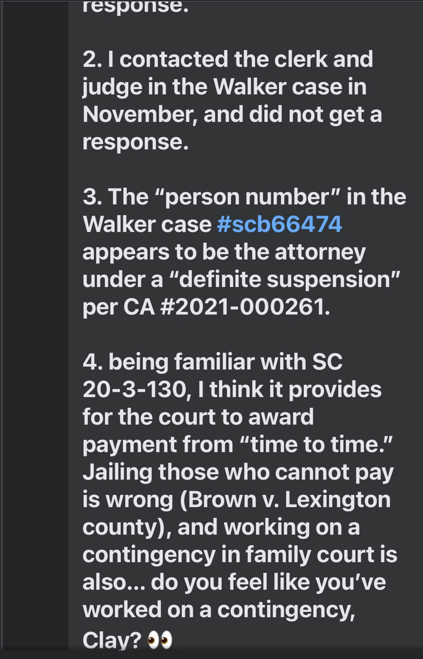
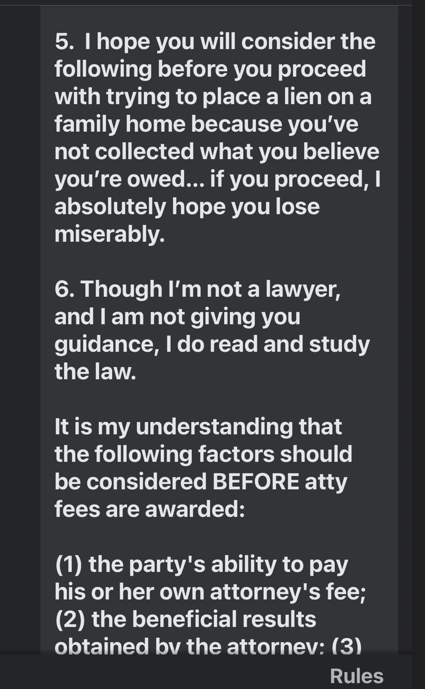
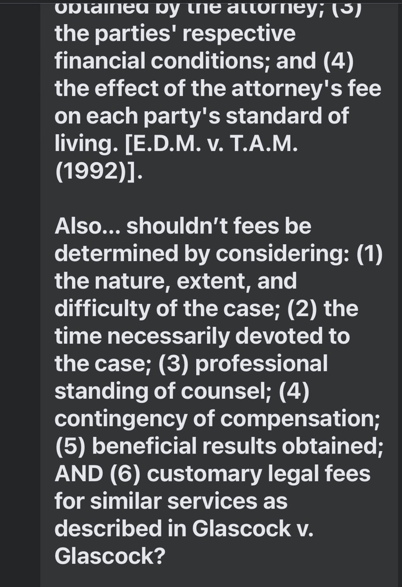
We reached out to Clay Hopkins asking: Question: Do you believe these public online posts are becoming of an officer of the court?
Hopkins responded by threatening to sue me personally. He did state he was not working on a contingency. Hopkins’ email states: “I am notifying you, in writing, that I do not have a contingency fee arrangement with Ms. ******s for her family court action. If you and your outlet report that – or anyone reporting on your behalf – I will immediately sue you for defamation (in addition to the grounds previously stated supporting a suit for defamation).”
He then cited this:

as well as asked me to investigate Rule 1.6(b)(6) of our Rules of Professional Conduct.
I looked these rules up as posted by the American Bar Association
(a) A lawyer shall not reveal information relating to the representation of a client unless the client gives informed consent, the disclosure is impliedly authorized in order to carry out the representation or the disclosure is permitted by paragraph (b).
(b) A lawyer may reveal information relating to the representation of a client to the extent the lawyer reasonably believes necessary:
(1) to prevent reasonably certain death or substantial bodily harm;
(2) to prevent the client from committing a crime or fraud that is reasonably certain to result in substantial injury to the financial interests or property of another and in furtherance of which the client has used or is using the lawyer’s services;
(3) to prevent, mitigate or rectify substantial injury to the financial interests or property of another that is reasonably certain to result or has resulted from the client’s commission of a crime or fraud in furtherance of which the client has used the lawyer’s services;
(4) to secure legal advice about the lawyer’s compliance with these Rules;
(5) to establish a claim or defense on behalf of the lawyer in a controversy between the lawyer and the client, to establish a defense to a criminal charge or civil claim against the lawyer based upon conduct in which the client was involved, or to respond to allegations in any proceeding concerning the lawyer’s representation of the client;
(6) to comply with other law or a court order; or
(7) to detect and resolve conflicts of interest arising from the lawyer’s change of employment or from changes in the composition or ownership of a firm, but only if the revealed information would not compromise the attorney-client privilege or otherwise prejudice the client.
BY POSTING ISSUES ABOUT THIS CASE ON FACEBOOK, DID HOPKINS VIOLATE THESE RULES OF PROFESSIONAL CONDUCT?
That is a matter for a Judge and the bar to decide. Regardless, the above is just one incident in one S.C. court room that clearly justifies Speaker Murrell Smith’s insistence that S.C. needs Judicial Court Reform.


